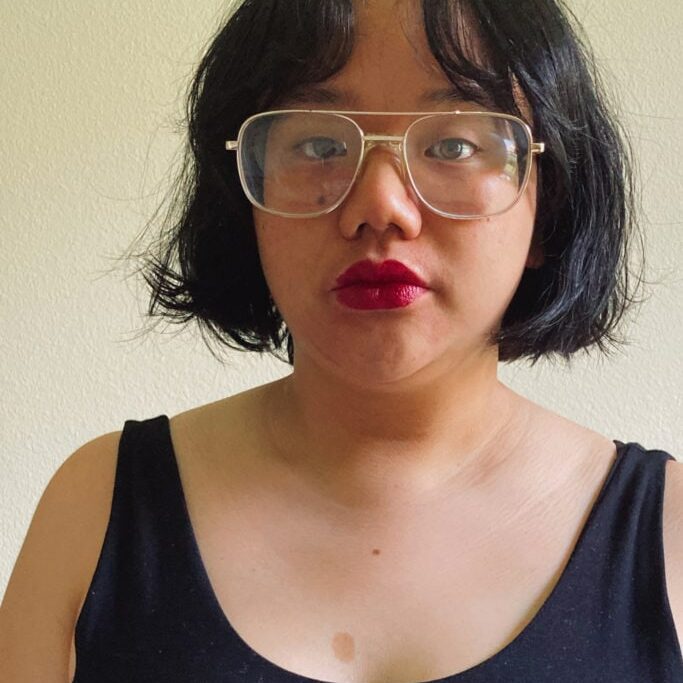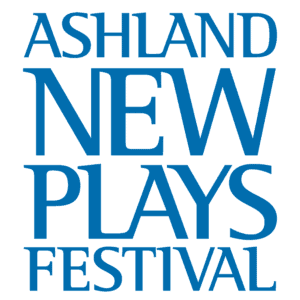Playwright Profile
Kathryn de la Rosa
Working on:
NON SO PIÙ (i don't know what i am anymore)
2021 New Voices Emerging Playwright

Currently residing: Sarasota, Florida
Grew up in: Paducah, Kentucky, with stints in eastern Kentucky, Arkansas and Kansas
Creative beginnings: I didn’t do theater until college, but my teenage David Bowie phase morphed into a Brecht and Weill one because my edition of Scary Monsters had his cover of “Alabama Song,” so I’ve always been insufferable. I was lonely and nerdy and went through very intense obsessions from Twilight to musicals to any 2010s Tumblr fandom, and I wrote fanfiction for them all. My dad barely convinced me to major in journalism in college, and by sophomore year I was a dramaturg.
Playwriting inspiration: Taylor Swift, Bertolt Brecht and journalism school.
I spent hours transcribing interview tape and hearing how real people speak, and I seriously believe Taylor Swift taught a generation how to write and feel without shame. Really, the Swiftian is a little out of my comfort zone, since half the time I look at my plays and think, “This could be a research paper.” My goal is almost always political education, and I have to consciously push myself to the Swift end of this Brecht-Swift spectrum.
I’m also in a loving constellation of Asian-American writers who don’t necessarily know each other but all inspire me made up of Kaela Mei-Shing Garvin, Lauren Gaynor and Alex Lin.
Writing process: I start with bibliographies and Spotify playlists, then write something that justifies their existence. I wouldn’t call myself a scholar, but my first friends in the theater department at Indiana University were PhD students who goaded me into dramaturgy.
I mostly write in conversation with history, so a combination of Catholic guilt, years of agonizing over media ethics, and my politics makes this kind of homework crucial for me. Holding a particular identity imbues me with no knowledge besides my own experiences. Sitting in my diaspora angst and first world microaggressions doesn’t serve me or my ancestors or address any problems for my living family in the Philippines.
To me, investigation is a love language and the bare minimum we owe before we speak. I’m going to seminary to supplement a play cycle about Christianity and colonialism, is how serious I am about this.
Your play's origin: I took voice lessons growing up, which mostly sent me on a series of identity crises. I was my teacher’s only nonwhite student, and they assigned me “Your Daddy’s Son” from Ragtime and “I Feel Pretty” from West Side Story. Then when I started singing classical repertoire and opera, I was too young to be so attached to mezzo pants roles like Cherubino who sings “Non so più cosa son” in The Marriage of Figaro, which I only later realized was gender dysphoria.
On a larger scale, I think a lot about the class connotations of classical music. More than one person in this industry has told me to my face that I’m “unusually well-read” or “really cultured” for where I come from, but my hometown has a symphony orchestra. While my high school didn’t have a drama program, choir girls fought over cantoring mass instead of cast lists and sang in Italian, German and Latin. I look at how my siblings and I all learned piano and musicians like Jo Sumi and Lang Lang, and how performing Western classical music became cultural capital for Asians in East Asia and North America. I also want to broaden “east” to the former Soviet Union and its satellite states, the making of nationalist music, and how art is valued as high culture or folk.
It’s really a very global play that starts in the Midwest.
Favorite moment or line: They’re all surprises!!!! But there are at least two thrilling celebrity drag cameos that verge on documentary theater.
Hope for audience takeaways: My nerd answers are the enjoyment of dialectics and the process of deimperialization, and my human answer is appreciation for the talent, brains and heart that exist in small town America, and that provinciality means neither ignorance or homogeneity. I say most of what I do is out of spite, but that spite is how I defend the people who made me.
Most looking forward to at ANPF: I’ve been in a lot of new play settings as a dramaturg myself, so stepping into the role of writer is still new to me. I don’t think it’s possible for me to turn off that part of my brain, but I’m so excited to work with Amrita Ramanan. And I’m very jazzed to meet my cohort! I had one year out of undergrad cut short by COVID before my immunosuppressant confined me to my parents’ house indefinitely, and I’m sure my friends are sick of me. I’m also so happy to be in community with writer-performers, who might be my favorite kind of playwright.

